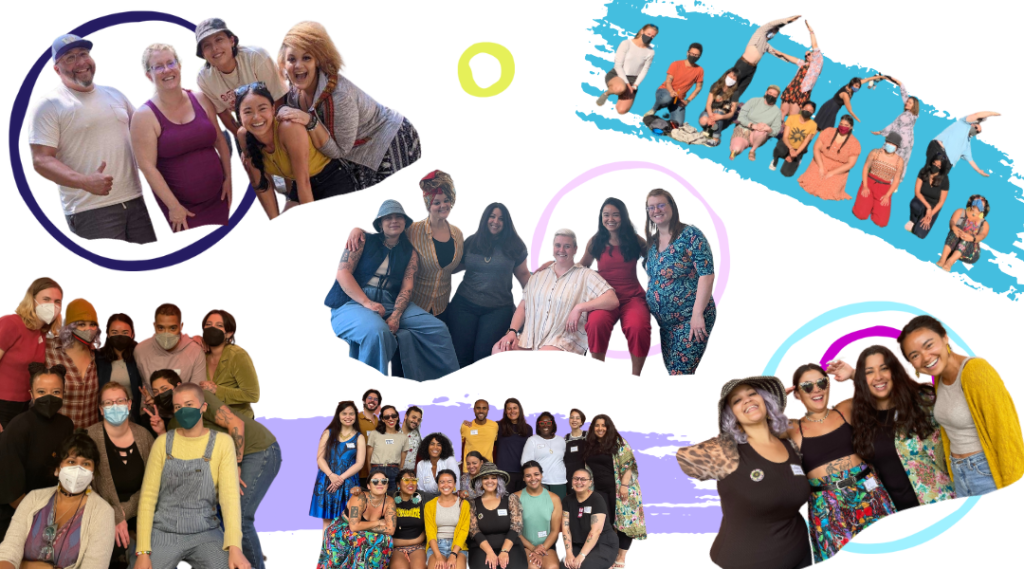
By Pj Bergstrom
January 2024
It is with a mix of emotions and deep reflection that we share our decision to sunset Seattle Works at the end of February 2024.
The past 35 years have forged unforgettable connections, accomplished meaningful projects, and contributed to necessary shifts in the movement for collective liberation. We are mourning with open hearts through feelings of sadness, frustration, gratitude, hope, and more. As we transition into finality, our end brings new beginnings and vitality to other facets of liberation work.
(If you’re curious about our journey since 1989, read about it here.)
In 2023, staff confronted some unsettling financial realities that required emergent solutions for our potential sustainability. We found ourselves at the intersection of income uncertainty, staff burnout and departure, and general hardships as an intermediary organization amid a recession. Our story has a universal resonance, mirroring financial challenges shaped by global economic trends in the nonprofit sector—at the same time, our reasoning to dissolve distinguishes itself uniquely due to nuanced challenges inherent to our mission and work.
The economic aftermath of the pandemic wreaked havoc across the world and the nonprofit sector at large. In a report on Philanthropy and COVID-19, it states that “most nonprofits are positioned to survive a short recession, but a longer one could be devastating”. Since 2020, we have witnessed many funders shift their giving to organizations on the frontlines of COVID-19 relief. We also saw individual donors decrease or eliminate their gifts in response to ongoing inflation. Many nonprofits confronted these realities and found innovative ways to adapt and persist—at Seattle Works, we rebuilt our programs to exist virtually, which rooted us deeper into our evolved identity and values. While we embraced these renovations, they also came with unfortunate consequences, including a loss of multiple streams of income (Seattle Works Day, Teamworks, and our annual gala). Some relief was found from PPP loans, but this support was only temporary.
It became a perfect storm of funders changing their priorities, individuals less willing to part with their money, and a few of our income streams completely disappearing. As we created new structures to combat these changes, we also found ourselves facing uncertainty and trepidation from funders due to the nature of our work.
Seattle Works categorizes its work as indirect service, focusing on providing support and resources to those engaged in direct service to the community. This involves delivering educational sessions, creating community building spaces, and facilitating healing conversations that are primarily targeted towards nonprofit employees, board members, volunteers, and others. This role in collective liberation work is typically placed in the “intermediary organization” box. To define this type of nonprofit, I turn to Vu Le’s enlightening piece “The Mycelium Model for capacity builders, professional associations, funders, and other support organizations”. Vu describes these organizations as being “vital to the nonprofit ecosystem because without support organizations, it will be challenging if not impossible for many direct service nonprofits to thrive”. Time and time again we hear our program participants share how necessary these spaces are for the collective well-being of the sector.
Without this pillar of community care, the sustainability of those in the movement for liberation weakens, and we see more people abandon the work due to burnout and frustration.
Unfortunately, our method of supporting those who are supporting the emergent needs of the community is not prioritized by funders. Due to the lack of financial investment in the cause, Seattle Works is at its breaking point. Intermediary organizations are often underfunded, and we are not immune to that reality—about 50% of our revenue has disappeared in the past two years. There are many reasons that funders do not prioritize this type of work, which can be read in length here (yes, it’s another post by Vu Le, we love him).
One of the most applicable reasons for our situation is funders view our work as “less important” than direct service organizations. In 2023, we had a funder unexpectedly cut their donation in half, which accounted for about 17% of our yearly budget. At the same time, another funder decided to divert funds to a different issue and did not renew a multiyear grant that accounted for an additional 17% of our budget. On top of that, we are seeing organizations allot less money to employees’ professional development funds (due to inflation, a looming recession, and budget cuts) which in turn makes our programs fees less accessible to those that want to participate. In total, we found ourselves facing a ~40% gap in our budget, and an overwhelming feeling of instability and fear across staff.
As a team, we collectively navigated the decision-making process regarding the future of the organization while adhering to our human-centered values. Our considerations encompassed finances, staffing, and community impact. At the time, our Education Director, Cassie Whitebread, had recently departed, our Operations Director, Amanda Brown, was on family leave with plans to pursue a different career in 2024, and our Narrative Director, Pj Bergstrom, had relocated to New York with intentions to leave Seattle Works in 2024. With three out of six staff members already gone or poised to exit, we recognized the significant workload that would fall on the remaining three staff members. Between the need to remedy gaps in the budget and fill vacant roles, we did not feel comfortable with the overwhelming burden this would place on our colleagues in the context of our flat staff structure. It became evident that distributing such a workload among the remaining team members was neither fair nor feasible, and they expressed reluctance to shoulder it. Consequently, we chose to prioritize the well-being of our staff and support their transitions into new employment, reassuring ourselves and each other that the legacy and mission of Seattle Works would persist through each of us and our community members.
Our collective efforts have left an indelible mark on the nonprofit sector and beyond, and we trust that the seeds of liberation planted during our time together will continue to blossom in new and unexpected ways.
In this phase of our life cycle, let us remember the incredible journey we’ve shared and persist ahead with power to enact our dreams of liberation for all. In the coming weeks we will be sharing a list of relevant resources and organizations to engage with and support.
Thank you for being an integral part of the Seattle Works community—your dedication has been the heartbeat of our organization. We part with overwhelming gratitude for the memories we’ve shared and the impact we’ve created together.

